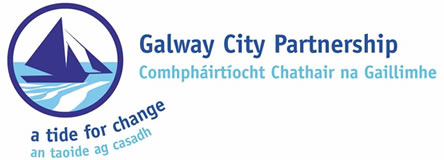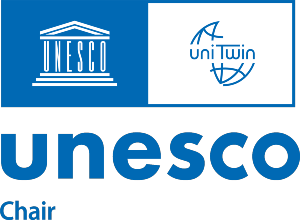2022
Projects Completed in 2022
| Project Title | Planet Youth – Research and Data analysis support |
| Commencement Date |
2020 |
| Research Team |
Dr Charlotte Silke, Dr Bernadine Brady |
| Project Summary |
Planet Youth is an international evidence-based primary prevention model, developed by the Icelandic Centre for Social Research and Analysis (ICSRA) at Reykjavik University. Initially developed to reduce substance use rates amongst young people, the model uses a whole population approach to target the risk and protective factors that determine youth substance use behaviours and enhance their social environment. In Ireland, Planet Youth pilot sites are operating in Galway, Mayo and Roscommon. These five-year pilot programmes have been initiated and developed by the Western Region Drug and Alcohol Task Force with the support of partner agencies in the region. The model is underpinned by data derived from the administration of a comprehensive questionnaire to all 15-16 year olds in the region every two years. The data from the survey enables communities to develop data-driven interventions designed to address selected risk and protective factors. The UNESCO Chair programme is a member of the steering group of Planet Youth Galway and provides research and data analysis support to the Planet Youth programme. |
| Funded By |
|
| Project Title | Review of the Child and Family Agency Parenting Support Strategy |
| Commencement Date |
2021 |
| Research Team |
Dr Carmel Devaney, Dr Rosemary Crosse, Dr Patricia O Connor, Dr Rebecca Jackson |
| Project Summary |
The UNESCO Child and Family Research Centre, at NUI Galway are conducting research with parents and practitioners to understand experiences of parenting support services in Ireland. This study also will identify the strengths and challenges of the services experienced, with the goal of informing Tusla’s new Parenting Support Strategy. |
| Funded By |
|
| Project Title | A Rapid Review of the Benefits and Outcomes of Universal Youth Work |
| Commencement Date | 2021 |
| Research Team |
Dr Bernadine Brady, Dr Charlotte Silke and Dr Aileen Shaw |
| Project Summary |
This research study aims to synthesise recent evidence relating to the benefits and outcomes of universal or open access youth work. The review was undertaken to inform the reform of the Department of Children Equality Disability Integration and Youth’s (DCEDIY) Youth Services Grant Scheme (YSGS). The outcomes associated with universal youth work identified in the studies reviewed have been synthesised into in five thematic categories: personal development and growth; relationships, connection & support; civic values and behaviour, health and wellbeing and education, career and hard skills. |
| Funded By |
|
| Project Title | Covid-19 Youth As Researchers Global Initiative |
| Commencement Date |
March 2020 |
| Research Team |
UCFRC Team Members: Prof. Pat Dolan, Dr Danielle Kennan |
| Project Summary |
The eruption of COVID-19 has created an unprecedented health crisis, disrupting the lives of thousands of individuals, as well as their communities, societies, politics and economies. As this pandemic expands, young people have been amongst those mobilizing as civic agents to shape new forms of solidarity, humanism and creativity. At the same time, young people are amongst those impacted by the current crisis. The Youth As Researchers (YAR) global initiative on COVID-19 connects and engages with young people to conduct research on the impacts of COVID-19 on young people and the responses young people have implemented to tackle these challenges. UNESCO and the UNESCO Chairs at the National University of Ireland Galway and Penn State University lead a consortium of youth-led or and youth-related actors to support the research through training, mentoring and coordination. Five themes have been identified to define the overall scope of investigations: well-being, learning, use of technology, human rights and youth taking action. This is a major project for the UNESCO Chair and a key collaboration for fellow UNESCO Chair at Penn State as Co-Principal Investigators Project Leads and a significant as a core partnership with Ms Maria Kypriotou, Social and Human Sciences Section UNESCO HQ and Dr Susan Vive Vize UNESCO Regional Asia Office. Project Website: https://en.unesco.org/covid19/youth/yar |
| Funded By |
|
| Project Title | Bridging Worlds – New Learning Spaces for New Times |
| Commencement Date |
2020 |
| Research Team |
Dr Bernadine Brady, Dr Cornelia Connolly & Professor Pat Dolan |
| Project Summary |
Covid 19 related school closures have exacerbated educational inequality and inequity. With an imperative to establish a strong and sustainable interface for learning, this project will enable a reconceptualization of the intersection between formal and non-formal education settings. The project aims to bridge the gap between learning in formal learning and non-formal contexts. The project has been conceptualised as a wrap-around model – where we support children, teachers, school leaders and youth workers - with a shared focus on the quality of all children’s learning with proactive targeted provision for marginalised groups. While the focus is on all learners the project has a core objective of enhancing and reimagining the educational infrastructure around learning spaces for marginalised and disadvantaged learners who typically struggle. The project is a partnership between a range of organisations, including the School of Education (NUIG), Foróige and the UNESCO Child & Family Research Centre. |
| Funded By |
|
| Project Title |
School Culture: Empathy Research and Diagnostic |
| Commencement Date |
2020 |
| Research Team |
Prof. Pat Dolan, Dr Charlotte Silke, Dr Aileen Shaw, Dr Bernadine Brady |
| Project Summary |
This project builds on findings from earlier research undertaken by the UCFRC team that indicates a whole-school approach to the promotion of empathy and social values is warranted. Increasingly, evidence suggests that in efforts to bring about systemic change, a whole school or holistic approach that permeates and is sustained by the entire school community is being endorsed. Across a range of stakeholders, this includes school ethos and policies, educational curriculum, support services, staff development, student-staff relationships and community engagement. However, further research and guidance on the specific nature and components of a whole-school approach to empathy are required. Based on a systematic review of the literature, this project proposes to explore the development of a Diagnostic Tool to support assessing and promotion empathy in schools. Pending funding availability, this self-assessment tool will be developed and piloted by researchers and is intended for use within secondary schools to self-evaluate levels of empathy. As a proposed instrument for use in a global context the development and design will incorporate a range of cultural factors. |
| Funded By |
|
| Project Title | Impact Orientation of Principal Investigators of Medical Device Publicly Funded Research Projects |
| Commencement Date |
2016 |
| Research Team |
Prof Caroline McGregor, Prof James Cunningham, Brendan Dolan |
| Project Summary |
This study investigates the impact orientation of principal investigators (PIs) undertaking publicly funded research that relates to the medical device sector. While there is a growing body of empirical research on PIs, little is known about how PIs understand and conceptualise research impact, beyond the oft-discussed scientific and economic outputs and outcomes traditionally associated with academically focused research projects. However, as a key actor in the translation of research, the PI plays a vital role in bridging the translation gap, sometimes referred to as the outcome-impact gap, in enhancing the potential broader impact of publicly funded research on society. This is of particular importance at present in the medical device sector given the significance of clinical and translational research in ultimately positively impacting on patient care and the quality of life of patients. To better understand the impact orientation of PIs involved in medical device research, from basic to applied scientific fields, the study’s multidisciplinary research team is investigating the antecedent, organisational, project and individual level factors that influence and enhance the principal investigator’s impact orientation. The study is using an innovative ecological approach from social sciences to conceptualise and map research impact and the micro- to macro-level stakeholders involved throughout the medical device translation process. |
| Publications |
Cunningham, J.A., Dolan, B. and McGregor, C. (2020) Preparing scientists for the principal investigator role and impact in the medical device sector [White paper]. Galway: CÚRAM SFI Research Centre for Medical Devices, National University of Ireland Galway. |
| Funded By |
|
| Project Title | Evaluation Framework for Community Development Group Activities of the Galway City Partnership (GCP) |
| Commencement Date |
2020 |
| Research Team |
Professor John Canavan (Principal Investigator) |
| Project Summary |
Facilitation Process towards Community Development Monitoring and Review Methodology for Galway City Partnership. The aim of the process is to develop a practice methodology that:
|
| Funded By |
|














